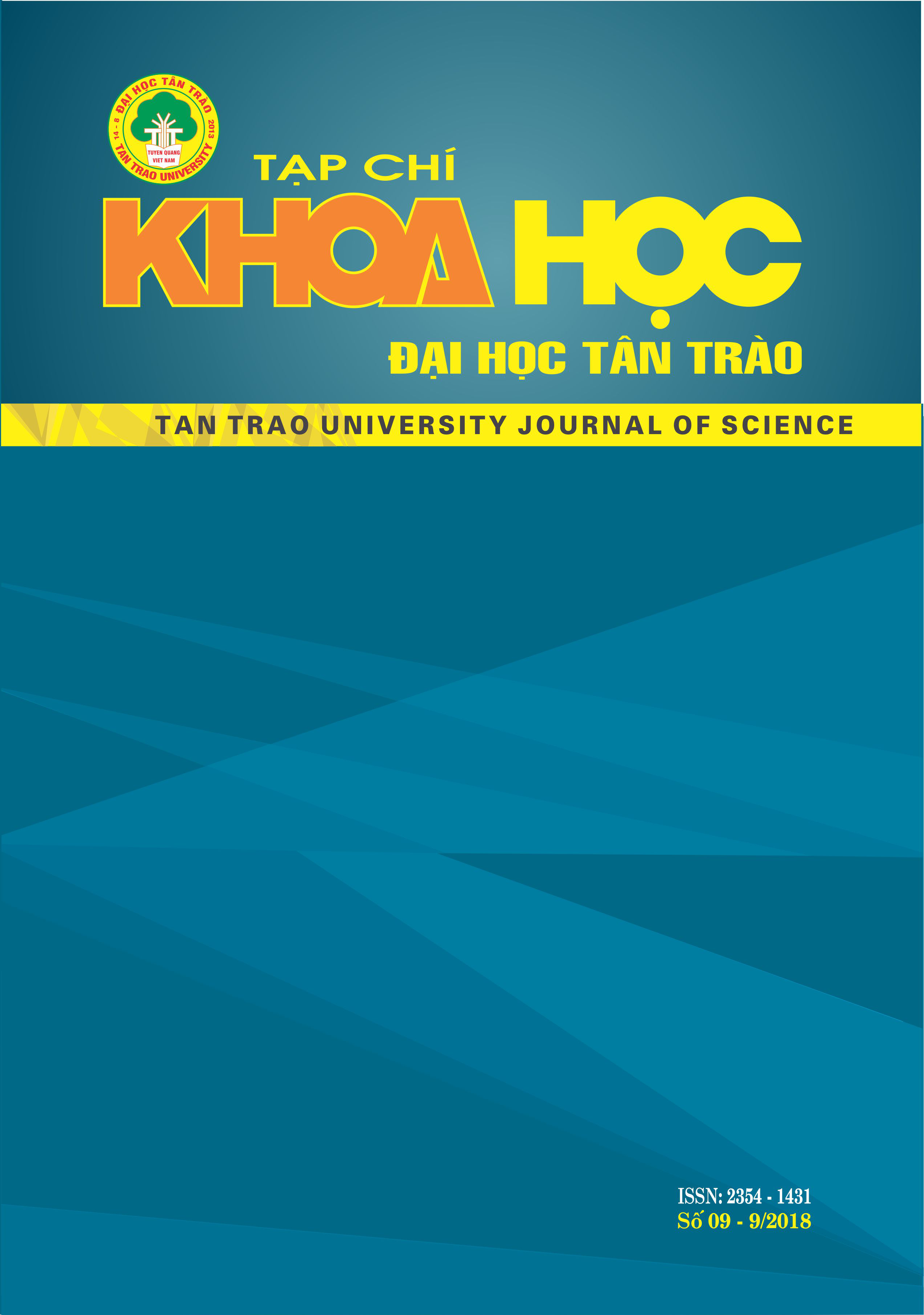Influence of Kinh – Han culture on prosody of lyrical folk songs of Tay people
DOI:
https://doi.org/10.51453/2354-1431/2018/201Keywords:
Affection, language, culture, romantic folk song, Kinh people, Han people, Tay people.Abstract
Due to the process of exchanging Kinh, Han, Tay, Kinh and Han cultures, brought a great impact on the poetic verse of Tay folk songs on three aspects: language, classic reference and prosody. It is a mixture of Tay lyrical languageandVietnamese language, most of it is from Han - Viet in poetry art. This led to the use of many of the Han and ethnic classic references. The main prosodyof lyrical folk songs of Tay people is the loss of two languages is seven and seven – lined stanza. These charcteristics make Tay folk songs more intellectually and closer to the literary writing of the Kinh, Han. However, in the process of acquisition, the Tay people has transformed some of the factors influenced to fit the psychological characteristics of the people. That makes the lyric of the Tay folk songs bringing beauty and sophistication, style, just natural, simple.
Downloads
References
1. Hoàng Triều Ân (chủ biên) (2014), Thành ngữ - Tục ngữ - Ca dao dân tộc Tày, Nxb Văn hóa dân tộc, Hà Nội;
2. Phương Bằng (sưu tầm, phiên âm chữ Nôm và dịch) (2012), Phong slư, Nxb Văn hóa dân tộc, Hà Nội;
3. Hoàng Thị Cấp (sưu tầm và dịch) (1994), Chồm bjoóc mạ, Nxb Văn hóa dân tộc, Hà Nội;
4. Nhiều tác giả (1970), Rọi (Vốn cổ văn học dân tộc Tày – Nùng), Nxb Dân tộc Việt Bắc;
5. Nhiều tác giả (2000), Nguồn gốc lịch sử tộc người vùng biên giới phía Bắc Việt Nam, Nxb Văn hóa dân tộc, Hà Nội;
6. Hoàng Văn Páo (chủ biên) (2012), Lượn Tày: Lượn Tày Lạng Sơn, lượn slương, Nxb Văn hóa dân tộc, Hà Nội;
7.Lục Văn Pảo (sưu tầm, phiên âm và dịch) (1991), Lượn cọi, Nxb Văn hóa dân tộc, Hà Nội;
8. Trung tâm Khoa học Xã hội và Nhân văn quốc gia (2002), Tổng tập Văn học dân gian người Việt, tập 15 – Ca dao, Nxb Khoa học Xã hội, Hà Nội;
9. Viện Nghiên cứu văn hóa (2007), Tổng tập văn học dân gian các dân tộc thiểu số Việt Nam, tập 18 – Dân ca, Nxb Khoa học Xã hội, Hà Nội;
10. Viện Nghiên cứu văn hóa (2007), Tổng tập văn học dân gian các dân tộc, Tập 19 – Dân ca, Nxb Khoa học Xã hội, Hà Nội.
Downloads
Published
How to Cite
Issue
Section
License

This work is licensed under a Creative Commons Attribution-ShareAlike 4.0 International License.
All articles published in SJTTU are licensed under a Creative Commons Attribution-ShareAlike 4.0 International (CC BY-SA) license. This means anyone is free to copy, transform, or redistribute articles for any lawful purpose in any medium, provided they give appropriate attribution to the original author(s) and SJTTU, link to the license, indicate if changes were made, and redistribute any derivative work under the same license.
Copyright on articles is retained by the respective author(s), without restrictions. A non-exclusive license is granted to SJTTU to publish the article and identify itself as its original publisher, along with the commercial right to include the article in a hardcopy issue for sale to libraries and individuals.
Although the conditions of the CC BY-SA license don't apply to authors (as the copyright holder of your article, you have no restrictions on your rights), by submitting to SJTTU, authors recognize the rights of readers, and must grant any third party the right to use their article to the extent provided by the license.


